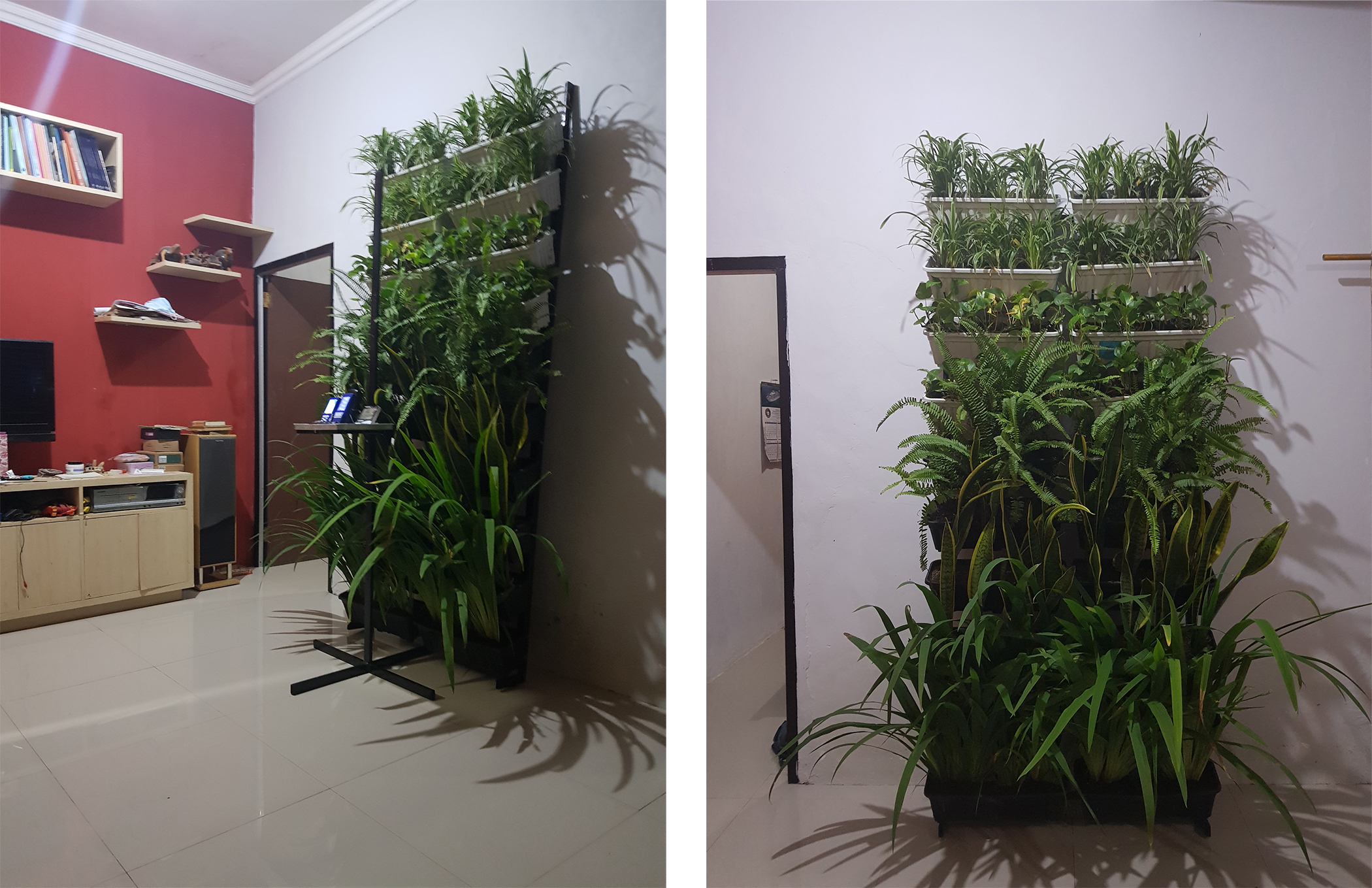
The Impact of Biowall on Human Multisensory in Tropical Landed Dwellings
Abstract
Currently, forest therapy is a new trend with various limitations. Biowall is the other form of mini forest therapy that brings plants into the built environment. This research offers the novelty of a human multisensory approach to investigating how biowalls, as a forest therapy, affect the environment. It's essential because humans perceive a comfortable environment through multiple sensory inputs simultaneously, including thermal (touch), visual (sight), respiratory (smell and lung), and auditory (hearing) conditions. To achieve the research objectives, data were measured from various variables, including temperature and humidity (for the thermal sensor), light intensity (for the visual sensor), CO2, VOC, HCHO, and PM2.5 concentration (for the respiratory sensor), as well as noise reduction (for the auditory sensor) in the family room with and without biowalls.
Furthermore, descriptive statistical methods with daily measurement averages were used to analyze the measurement variations. The results showed that a module of biowalls planting pot system with a leaf area of 10 m2 improved thermal (temperature and humidity), visual (light intensity), and auditory (noise reduction) conditions by 0.20 % and 2.54 %, respectively, for medium and high frequencies of 4.87 % and 6.87 %. They also could reduce the quality of respiratory conditions by 13.55 %. In conclusion, the findings suggested that biowalls can enhance the human multisensory conditions in the family rooms of tropical landed dwellings. This fact aligns with the main concept of forest therapy, which is to build a multisensory experience in the natural environment.
DOI: https://doi.org/10.20365/disegnarecon.33.2024.3
Keywords
Full Text:
PDFRefbacks
- There are currently no refbacks.
Copyright (c) 2024 tri susetyo Andadari, Prasasto Satwiko, L.M.F Purwanto, A. Rudyanto Soesilo
DISEGNARECON
ISSN 1828 5961
Registration at L'Aquila Law Court no 3/15 on 29th June, 2015.
Indexed in SCOPUS. Diamond Open Access. All papers are subjected to double blind peer review process by qualified reviewers.
Journal founded by Roberto Mingucci
